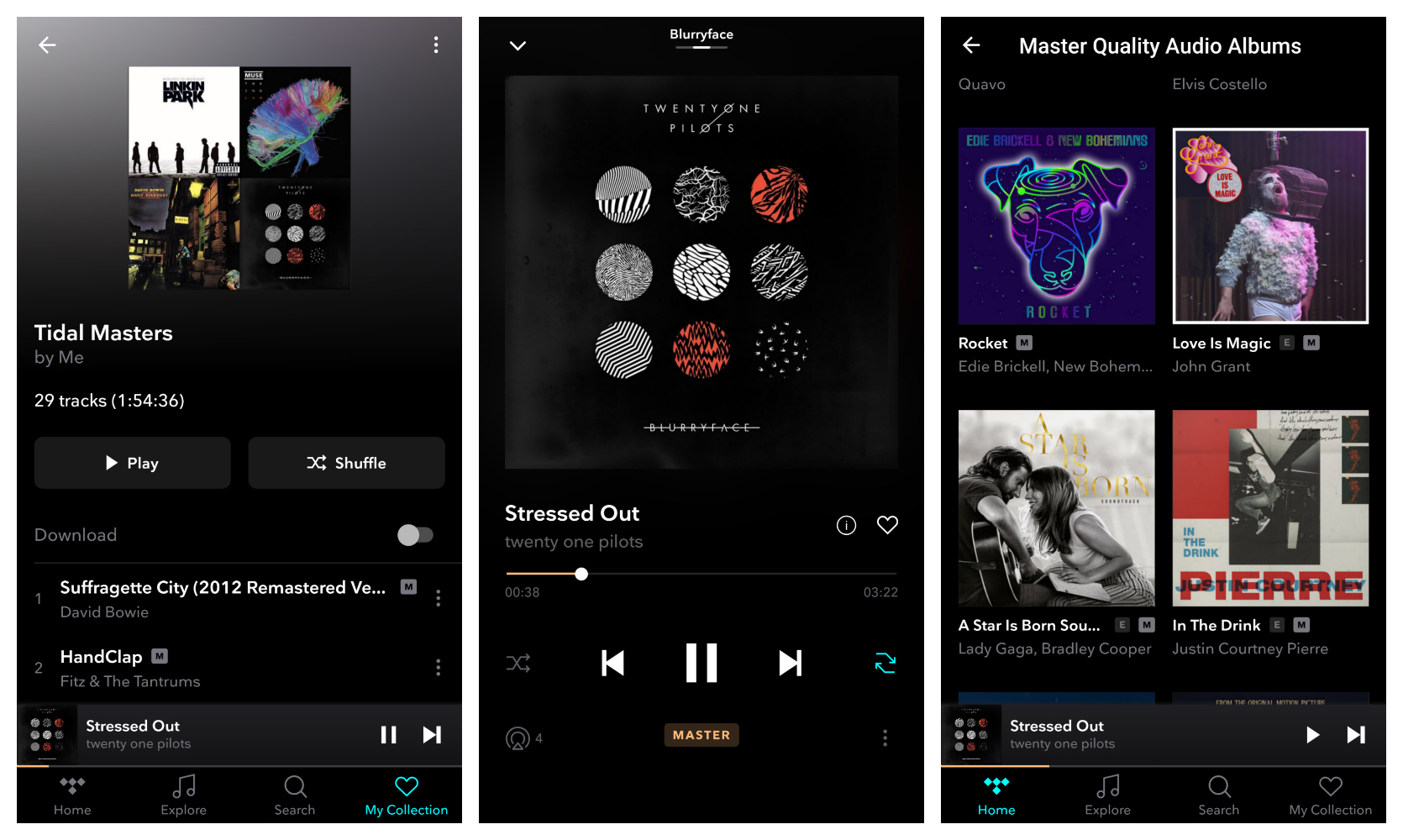Concurrent with the Consumer Electronics Show 2019 kick-off and other Day 0 announcements, music streaming service Tidal updated its Android app (hehe, sorry iOS users) to support Masters. Oh, yeah, baby. Gimme, gimme. Tidal unveiled Masters, in licensing partnership with MQA, two years ago during the same tech gala.
Abandoning Apple for Google products during summer 2018 meant my giving up Tidal Masters, which until today were only available on the macOS and Windows desktop apps. Because Chrome OS supports Android apps, I can now listen to Masters on my laptop, not just smartphone. You can, too (if not an Apple device user).
Already, Tidal’s 16-bit, 44.1 KHz 1411kbps FLAC (Free Lossless Audio Codec) sounds superior to 256kbps AAC or 320kbps MP3, delivering close to CD quality. MQA is superior, more authentic, but less a codec and more a way of processing and packaging content, which can be delivered as part of lossless formats like FLAC. Streaming 24-bit, 96 KHz Master Quality Authenticated audio feels closer to the original studio recordings, the developer promises. Better sound, and something truer to the engineered work, increases the music’s value and puts back the emotion too often stripped out by heavy compression.
Supported equipment is required for the full fidelity experience, but even “on conventional players without an MQA decoder, MQA will sound better than CD quality”, according to the developer. In my listening experience, using the Grado GS1000e wired headphones, even without source-device MQA support, Tidal Masters sound fuller and more dynamic, immersing greater presence.
Supporting Android before iOS makes sense for Tidal, because of licensing and hardware. Several smartphone manufacturers already license MQA—LG among them (on the V30+ and V40 TinQ, for example). Many cellular devices, like my Pixel 3 XL, are capable of Bluetooth streaming aptX HD, which is 24-bit, 48KHz, to supporting wireless headphones.
While Apple trolls CES attendees and participants about privacy, competitors advance audio technologies that are truly beneficial and innovative—all while the fruit-logo company clings to the listless iPhone platform, for which hi-fidelity codecs like aptX, aptX HD, LDAC, or MQA, aren’t licensed.
